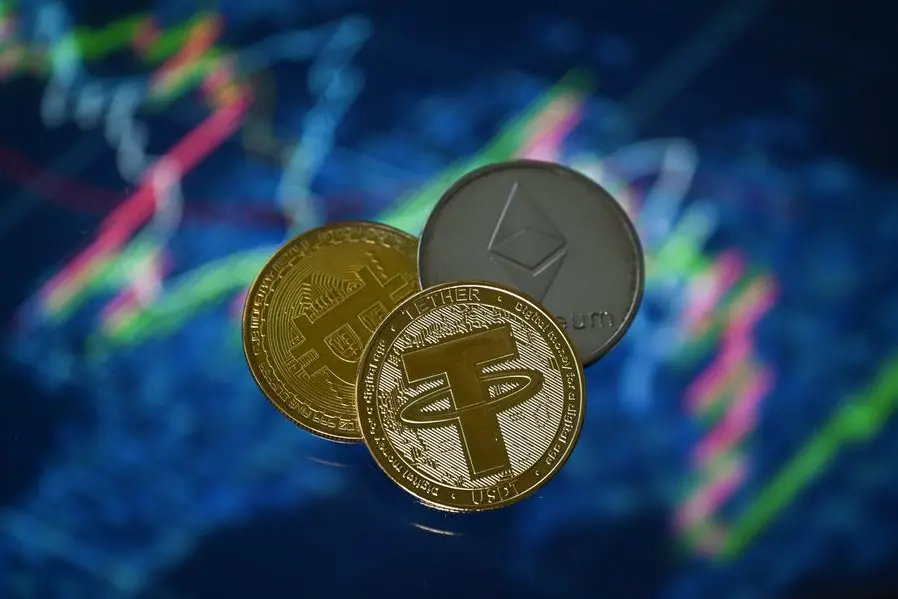PHOTO
South Korea will seek the extradition of fugitive crypto entrepreneur Do Kwon, prosecutors told AFP Friday, after the Terraform founder was arrested in Montenegro and hit with US fraud charges.
Kwon, whose full name is Kwon Do-hyung, has been accused of fraud over his company's dramatic collapse last year, which wiped out about $40 billion of investors' money and shook global crypto markets.
The 31-year-old was arrested at the Podgorica airport in Montenegro on a South Korean warrant, the country's interior ministry said Thursday.
Soon after, the United States charged him with eight counts, including securities fraud and wire fraud, which followed a lawsuit by the US Securities and Exchange Commission.
In South Korea, where Kwon is wanted for violations of the country's capital markets act, authorities confirmed Friday that they would seek his extradition.
"South Korean prosecutors will take steps to repatriate Kwon Do-hyung. We are working on the process," Kim Hee-kyung, a spokeswoman for the Seoul Southern District Prosecutors' Office, told AFP.
Kwon reportedly flew from South Korea to Singapore ahead of the company's crash in May last year.
In September, South Korean prosecutors requested that Interpol place him on the red notice list across the agency's 195 member nations, and also revoked his passport.
- Fake Costa Rica passport? -
But questions about his whereabouts intensified after the Singapore Police Force said that he was not in the country.
Montenegro authorities said Thursday that Kwon had "used falsified travel documents from Costa Rica" during passport control for a flight to Dubai.
Inspection of their luggage also found travel documents from Belgium and South Korea, while Interpol checks discovered that Belgian documents were forged, Montenegro's interior ministry added.
Many investors lost their life savings when Kwon's Luna and Terra entered a death spiral, and South Korean authorities have opened multiple criminal probes into the crash.
South Korea's National Police Agency said it would collaborate with the country's prosecutors as they seek Kwon's extradition.
"As an organisation that works closely with the Interpol, we will actively cooperate with the Seoul Southern District Prosecutors' Office," Jeong Beom-seok, an official from the National Police Agency, told AFP.
South Korea is a member of the European Convention on Extradition, a multilateral convention that facilitates extradition between member nations, and Montenegro is also a signatory, the justice ministry said in a statement.
"The justice ministry will proceed with the extradition process in accordance with laws and international agreements," it added.
- 'Multi-billion-dollar crypto fraud' -
Cryptocurrencies have come under increasing scrutiny from regulators across the globe following a string of recent controversies, including the high-profile collapse of the exchange FTX.
Kwon is accused of "orchestrating a multi-billion-dollar crypto asset securities fraud", according to the US Securities and Exchange Commission.
"It is true that Kwon has done too much damage to too many people, with something that carried a lot of unexplained risks," Cho Dong-keun, an economics professor emeritus at Myongji University, told AFP.
"It's very unfortunate that he ran away. A responsible adult and entrepreneur would have stayed and explained. The fact that he tried to avoid authorities by even using forged passports shows his character."
His TerraUSD was marketed as a "stablecoin", which is typically pegged to stable assets such as the US dollar to prevent drastic fluctuations in prices.
But TerraUSD was an "algorithmic stablecoin" -- not backed by assets, instead pegged only to its floating sister currency Luna. And some $40 billion in market value was erased when the two currencies went into freefall in May 2022.
Kwon and Terraform Labs also moved more than 10,000 bitcoin out of their failed project and converted some of the tokens into cash via a Swiss bank, Bloomberg News reported, citing the US SEC.
"Kwon certainly needs to be held accountable for his actions," Kim Dae-jong, a professor of business administration at Sejong University, told AFP.
"The bottom line is that Kwon didn't run the company according to laws and principles. He exploited it for his own personal, financial gain."





















